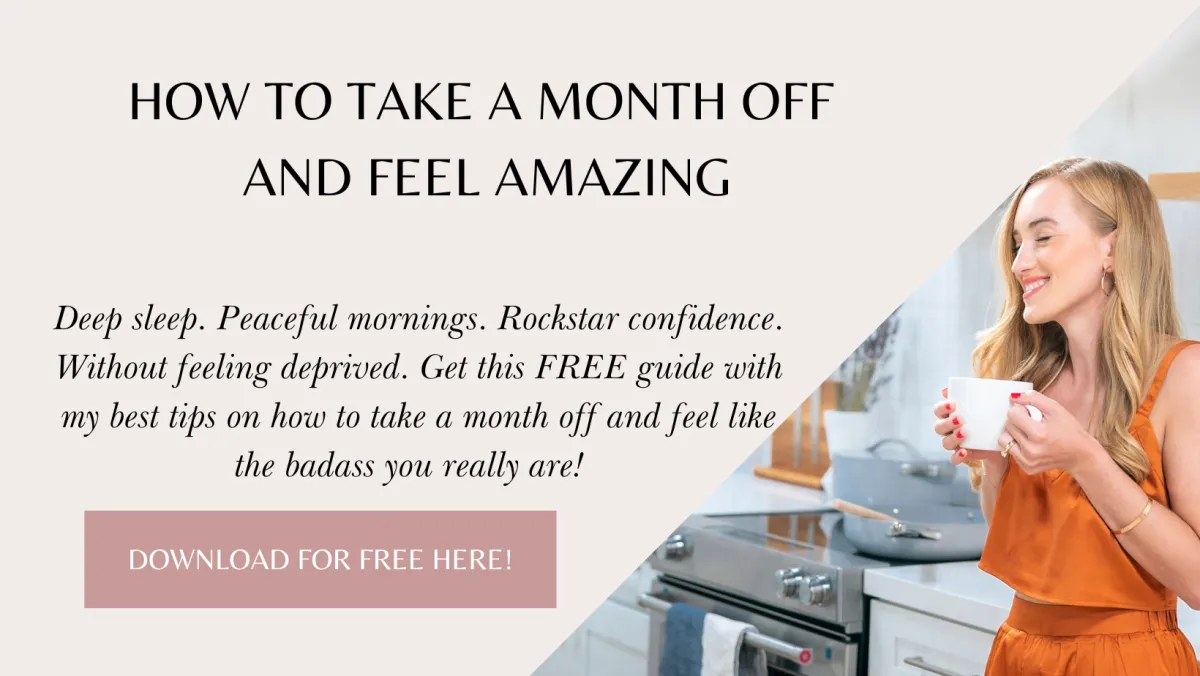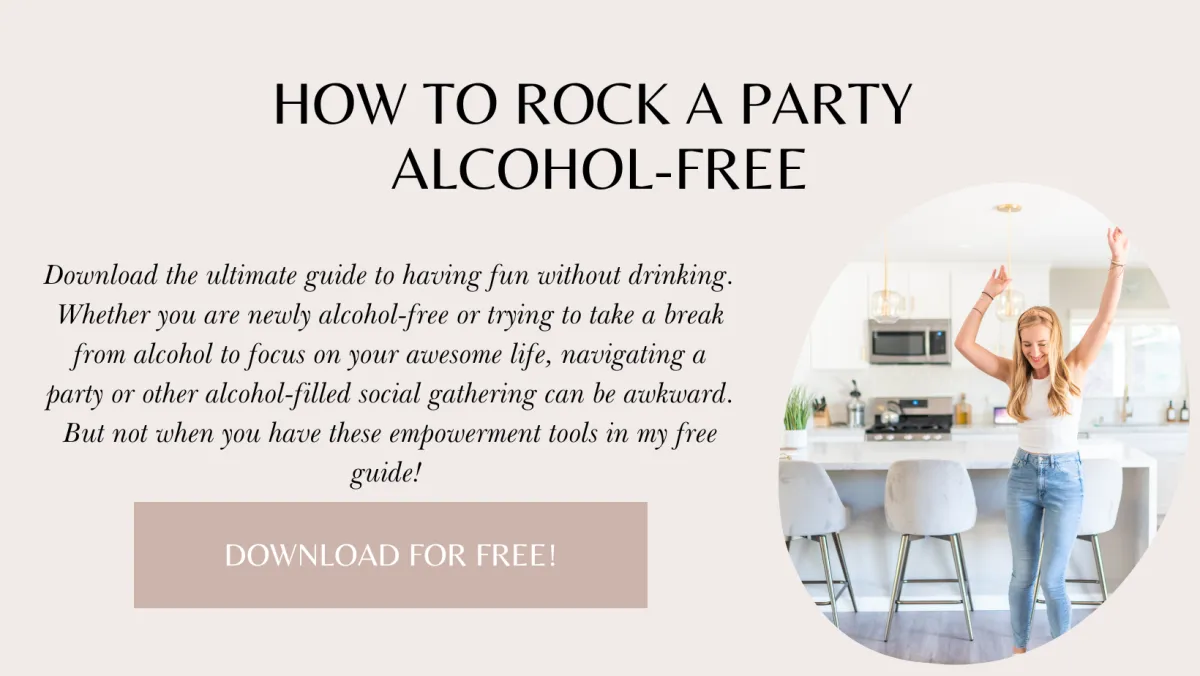7 Tools You Need for Dry January

Whether you want to reset, recommit, or transform your relationship with alcohol for good, Dry January is one of the most popular times in the year to take a break from alcohol. Dry January started years and years ago as a public health campaign in the UK to help raise awareness about the cancer risks associated with alcohol. Over the years, it evolved into the mainstream trend we know today. Just how popular is it? Last year, one out of five Americans participated in Dry January.
If you are gearing up to participate in Dry January this year, there are some tools you need to set yourself up for success. Remember drinking is something that is ingrained in us from a young age. When you think about how many times you've drank in your life, it's not just once or twice or here and there. It’s literally hundreds of times—if not thousands of times—over and over again. Drinking hundreds or thousands of times changes our brains and our neural pathways. It becomes a habit.
But it’s not just the habit. We also live in a society that glamorizes alcohol and sends the false messages that you’re abnormal, boring, or “have a problem” if you don’t drink.
Dry January is incredible time of year to question the status quo and really reflect and reevaluate the role of alcohol in your life. There are so many reasons to take a break from alcohol. It's the best thing you can do for your health. It makes your skin look younger and healthier. You sleep better and have more energy. You become more present with your loved ones.
To commit to a month-long break and enjoy all these benefits and more, I want you to have the best tools possible. Equip yourselves with these 7 tools to crush Dry January this year.
1. A TRACKER
The first tool you're going to need is a tracker. There are so many different and creative ways to track the days you don’t drink. You could get an old fashioned calendar, you could use a notepad, or you could download an app. One of my favorite apps is called Dry January. It has little tea cups and every day you don't drink, you get a little teacup. Cute, right?
Basically, what a tracker does is fulfill our need to get gold stars. Scientists have actually studied this. When we log and track things into a tracker, it actually releases a hit of dopamine in our brains.
Alcohol does that too. We get a hit of dopamine when we drink. There’s a fleeting buzz that lasts for 20 minutes tops and then we crash. Our dopamine levels get really low after that. The idea is to replace that dopamine you're expecting to get from alcohol with tracking. It feels really good to mark off day after after of progress.
Another tip? Give yourself a checkmark or track your progress in the morning. That way, when temptation comes along later in the day, you won’t want to erase that progress. You’re more likely not to drink because you already marked it off.
Are you looking for a free tracker? When you order a copy of my book, Euphoric: Ditch Alcohol and Gain a Happier, More Confident You, you get a bunch of free goodies, including a free Euphoric Calendar to keep you accountable.
2. Alcohol-Free Drinks
Alcohol free drinks are another great tool that will help you crush Dry January. Again, drinking is something you’ve probably done thousands of times over the years. It’s firmly ingrained as a habit in your brain, and sometimes it's not so easy to completely disrupt habits cold turkey.
Habit experts actually say we shouldn't—we should replace our habits instead. If you can replace the habit of drinking, it's a lot easier than just trying to like white knuckle your way through. The easiest way to replace the habit is to pour yourself a drink in a beautiful glass—just make it alcohol-free.
These days, there are literally thousands of alcohol-free drinks on the market. There's alcohol-free beer, alcohol-free wine, and alcohol-free spirits. There are even new concoctions that don't even taste like alcohol, like soft cocktails.
Find a drink you love this season. Go to the store and get a bunch of different drinks to try. Keep experimenting until you find the drink that feels like a treat to you.
3. Healthy Coping Mechanisms
The third tool you want to develop is a cache of healthy coping mechanisms. Realize that most of the time when we drink at home, it's because we want stress relief. You want to relax. You want permission to let go and turn off for the day.
When you know why you’re drinking and what needs you’re trying to meet with alcohol, you can come up with new—and more effective ideas—to meet those needs.
First, realize that when you drink, you're not relieving stress. Drinking triggers the release of stress hormones like cortisol and adrenaline into your system, so you're actually giving your body more stress to handle.
Instead, learn new, healthy coping mechanisms that work to truly relieve your stress. One of the first things to try is breathwork. A lot of theories say the reason why we have so much stress is because we're not getting enough oxygen into our bodies. We're not breathing deeply enough. Breathing deeply changes the state of our brain as well as the state of our guts and parasympathetic nervous systems. It's all connected. The more we breathe, the more serotonin our bodies release. Meditation and yin yoga are great too.
There are so many different things you can do for stress relief. There’s stretching, walking, exercise, journaling, taking a bath, and so much more. Come up with new stress-relieving activities you will look forward to.
4. A Journal
The fourth tool is really important: it’s a journal. You need a journal. It’s one of the most valuable tools to have when you take a break from alcohol.
Why? When you drink, you numb your emotions. So the first thing that's going to happen when you change your relationship with alcohol is you're going to start feeling those emotions. I don’t want you to feel overwhelmed with thoughts and feelings you’re not used to. To process them, you need to write them down.
A journal is one of the best ways that you can get to know yourself. It’s one of the best ways to put some distance between you and your thoughts and recognize not all your thoughts are true. It also helps you really express your feelings, process them, and let them go. Studies have proven we're able to access deeper parts of our subconscious when we write things down.
Plus, you can start a gratitude practice using your journal too. A gratitude practice is the perfect complement to a break from alcohol because—if you wanted to—you could focus on everything you think you're missing, right? When you look out for the things you're grateful for and write them down, more and more things will come to you. You’ll feel grateful instead.
5. Podcasts and/or Books
Depending on your learning style, the next tool you’ll need is books or podcasts. If you want to mentally detach from the significance you place on alcohol and change your mindset, you're going to need books to help you do it. Learning about different ways of looking at alcohol is going to be so helpful. I highly, highly recommend my book, Euphoric: Ditch Alcohol and Gain a Happier, More Confident You. My book will help you change your mindset around alcohol and give you a plan to follow for eight eight weeks off alcohol.
Podcasts are another great idea. Every week on Euphoric the Podcast, I interview incredible guests who drive home how amazing it is to live an alcohol-free lifestyle. I feature all these cool, different tips and pointers you can try as you're taking a break from alcohol as well.
Reading a book or listening to a podcast can really help you feel like you're not alone. When you read about not drinking, you know it’s something a lot of people go through. You're just learning more about it. The more you know, the more confident you feel—and the more confident you feel, the more you will believe in your ability to make lasting changes.
6. A community
The sixth tool you're going to need for Dry January is a community. Join my private Facebook group, The Euphoric Alcohol-Free Group, to hear from thousands and thousands of growth-minded women on the same journey. It’s a private group. Only people who are part of the group can see your comments and posts. You can ask questions or share things—or even use the group as a place to keep track of your progress and celebrate your wins.
For more intimate support, I highly recommend you sign up for the next round of Dry Bootcamp. On January 3, I’ll be kicking off my next round of Dry Bootcamp, a 22-day program with daily video lessons, group coaching calls, an active Slack community, and guides to help you socialize confidently and create new alcohol-free rituals this Dry January.
7. A Creative Project
The final tool you need for a really great Dry January is a creative project. When you take a break from alcohol, you free up a lot of time—and not just literal time. You also free up a lot of mental energy. Now you will have empty Friday and Saturday nights and so much potential that's not getting clouded or muddied by alcohol.
I work with a lot of clients who have big dreams—dreams to write books or launch their own businesses. Maybe it’s something simple. Maybe they want to just get back into art. They want to start taking more photographs or take up pottery or painting or drawing. I really believe it behooves you to find something. You don’t have to commit to any one thing, especially at first. Explore and experiment. This will stir up more creativity in your life. Being creative isn't just painting or writing something. You’re being creative any time you make something that didn't exist before. For you, it could be baking or cooking. It could be so many different things. Find a creative project you want to spend some time on—that you can pour your potential and brain power into because you’re not wasting hours and hours per week drinking anymore.
Get your 7 seven tools to set yourself up for a really incredible dry month. You’ll want to have them whether you’re taking part in Dry January for the first time ever, you’re recommitting and trying again, or you’re already alcohol-free.
Thank you so much for being here. I’m so grateful for you, and I’m so excited for all the potential you’re about to unlock when you commit to spending the next month alcohol-free. Doors to the next round of Dry Bootcamp open on January 3. In Dry Bootcamp, I’ll give you even more tools to make you successful. You’ll have a community of loving and supportive women to keep you accountable, daily journal prompts to give you clarity and purpose on your journey, and a free meditation to help you sit with and overcome cravings for alcohol. I’d love to see you there!






